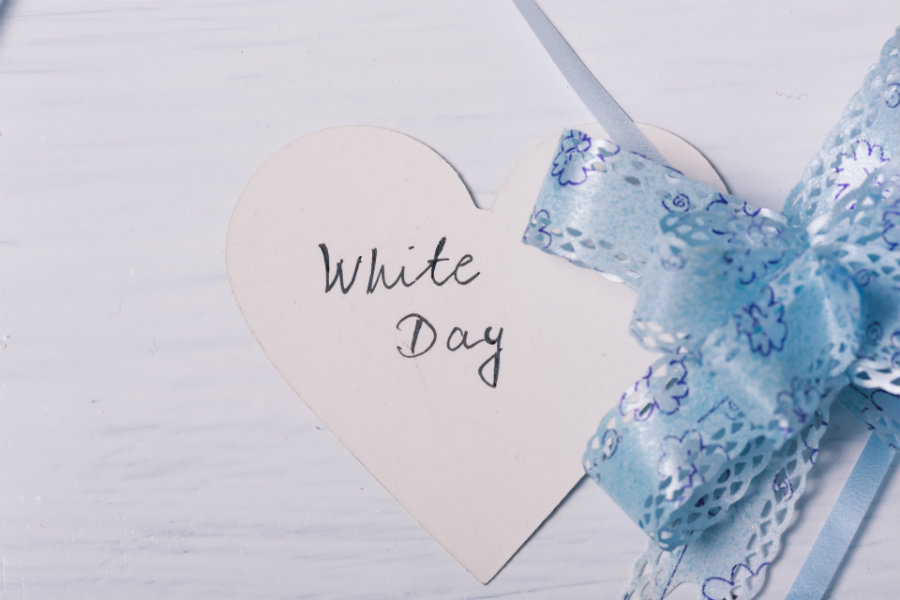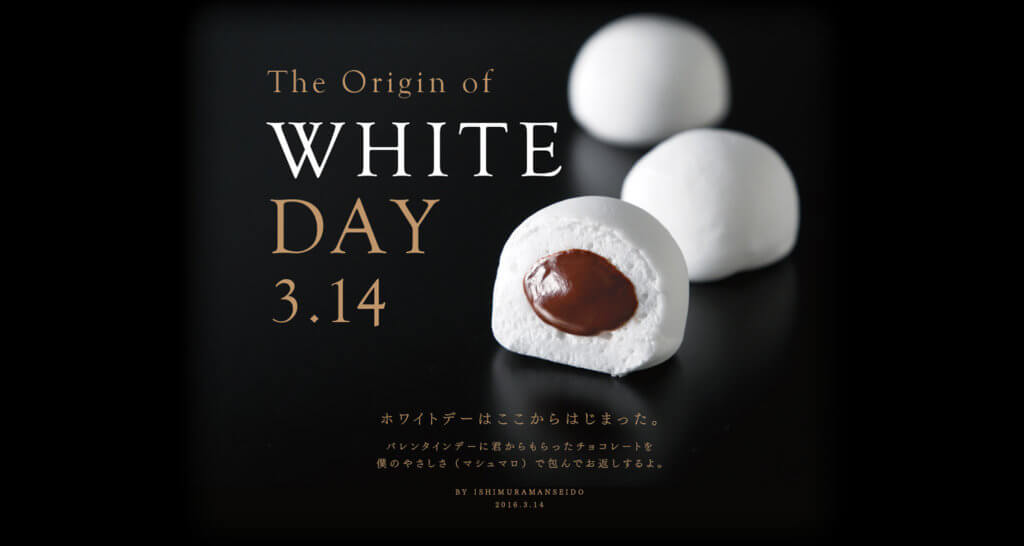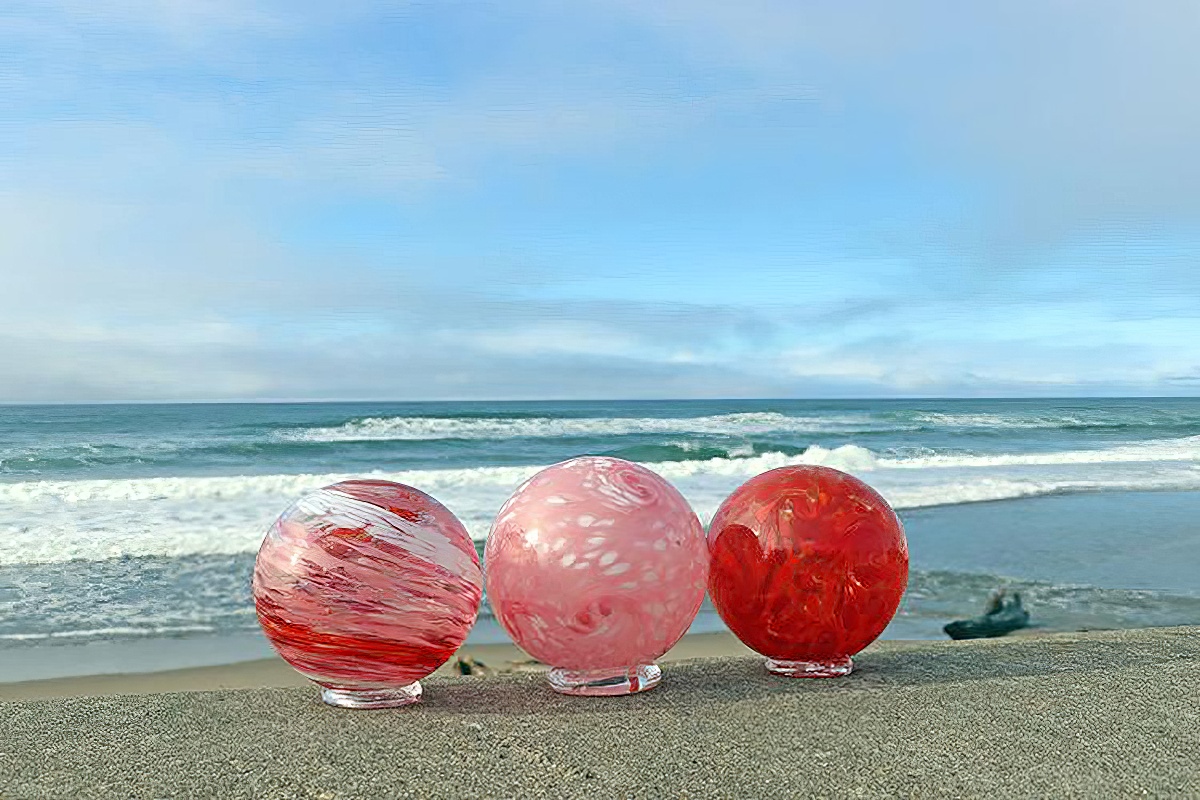Gallery
Photos from events, contest for the best costume, videos from master classes.
 |  |
 |  |
 |  |
 |  |
 |  |
 |  |
Valentine’s Day is celebrated on February 14th, while White Day in Japan is celebrated a month later, on March 14th. White Day is celebrated annually on March 14, one month after Valentine's Day, when people give reciprocal gifts to those who gave them gifts on Valentine's Day. It began in Japan in 1978; its observance has spread to several other East Asian nations like China , Taiwan , South Korea and countries worldwide. Have you ever wondered what Valentine’s Day in Japan is like? In this article, we’re going to give you the lowdown on Valentine’s Day in Japan and how it’s celebrated. We’ll also introduce ‘White Day’ which accompanies Valentine’s Day. What Is Valentine’s Day In Japan? In Japan, White Day is celebrated one month after Valentine’s Day. The two go hand-in-hand, and it wouldn’t make sense to celebrate one without the other. So what exactly is White Day and how did it come about? Things are a little different on Valentine’s Day in Japan. In Japan, White Day is men’s opportunity to reciprocate a gift they received from a woman on Valentine’s. They usually give white gifts to counterbalance the red that represents Valentine’s. White Day is also an ideal opportunity to invite a special lady on a date. What is more unique in Japan is that there exists a "White Day" which takes place on March 14th, exactly one month after Valentine's Day. On White Day men are supposed to give return gifts to women who gifted them chocolates on Valentine's Day. To be a little cynical, the one-sided nature of Valentine’s Day had opened a space for commercial businesses, who saw an opportunity to flog more confectionery, this time aimed at men. The alternative White Day tale begins in Hakata, a popular area of Fukuoka, the capital city of Kyushu. Each culture has their own way of celebrating Valentine’s Day and expressing love for one another, and Japan dedicates not one, but two days of the year to this love-ly holiday! Here’s everything you need to know about Valentine’s Day in Japan, and its companion holiday, White Day. White Day is celebrated exactly a month after Valentine’s Day on March 14th. It’s sometimes explained as reverse Valentine’s Day, both holidays have copious amounts of chocolate in common, but what exactly is White Day? And what’s its relation to Valentine’s Day? In Japan, where it’s believed to have originated, White Day is meant to be a day for lovers (typically men) to give gifts (typically chocolates or sweets) to their partners (typically Japan also observes a unique reciprocal holiday on March 14th, known as White Day, where men return the favour to those who gifted them chocolates on Valentine’s Day. This was created by the confectionery industry in the late 1970s and has since become a firmly established part of our Valentine’s Day cycle. In most places celebrating Valentine’s Day, women can expect chocolates, flowers and a romantic dinner from their partner. However, in Japan, it’s the opposite: women give chocolates to the men in their lives—from their boyfriends to their coworkers—although not all chocolates are equal. The special men in their lives receive honmei choco, “true feeling” chocolates, while In Japan, as previously mentioned, "White Day" is the counterpart to Valentine's Day, taking place on March 14th, where men reciprocate gifts to women who gave them chocolates or gifts on Valentine's Day. The term "White Day" in Japan signifies the tradition of men giving gifts to women, often in the form of white-themed presents like white A celebration of love, White Day is Japan’s answer to Valentine’s Day. Read to find out how White Day came to be, as well as what gifts to buy. In Japan, Valentine's Day and White Day form a duo of unique traditions, imbued with romance and exchange. These celebrations, although inspired by Western customs, have evolved to reflect the uniqueness of Japanese culture. Discover their history, their specifics, and why they fascinate so many around the world. Valen Valentine’s Day and White Day have been banned by some companies in Japan in the past few years for multiple reasons. As giri choco given by women in the workplace can be costly, in recent years, the major players of the chocolate industry in Japan have vocalized their concern for the giri choco tradition in the workplace. White Day (March 14) is a day when men who received chocolates on Valentine's Day give them back to women. It started in Japan. Candy, marshmallows, chocolate, and other sweets are commonly given on White Day. White Day is celebrated on March 14, one month after Valentine’s Day. It is a kind of second Valentine’s Day celebrated in Japan, China, and South Korea. While on Valentine’s Day, people give gifts to others to express their love, on White Day, the ones who receive gifts give gifts to the one they love and return the favor. White Day is a Japanese custom of men treating women to gifts and dinner on March 14th each year to thank them for Valentines Day. In Japan, men generally don't give gifts on Valentines Day. Moreover, White Day in Japan may be a celebration even more business oriented than Valentine's Day, since it was directly inspired by trading companies to increase sales. It is said that White Day was created in 1977 by Ishimura Manseido, a marshmallows shop located in Fukuoka .
Articles and news, personal stories, interviews with experts.
Photos from events, contest for the best costume, videos from master classes.
 |  |
 |  |
 |  |
 |  |
 |  |
 |  |